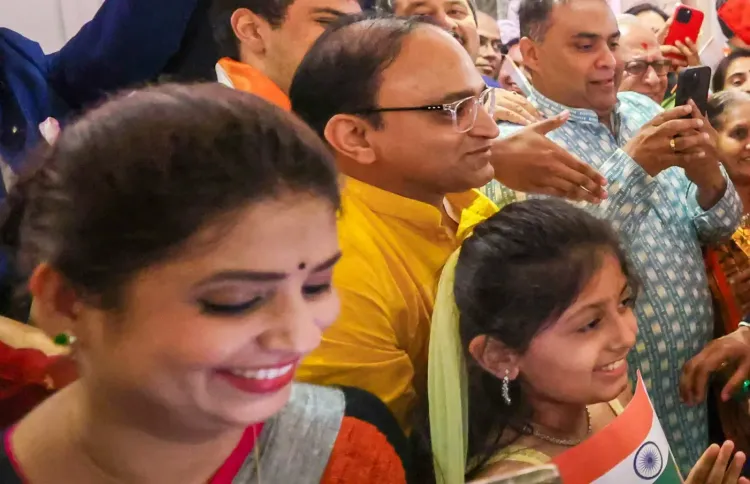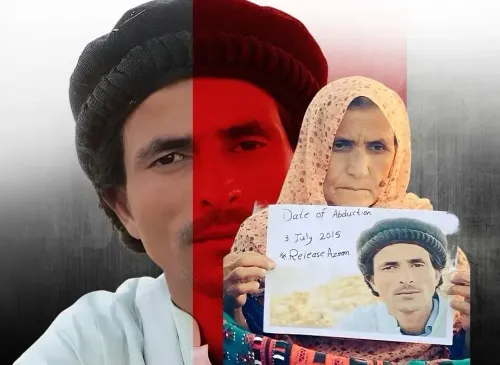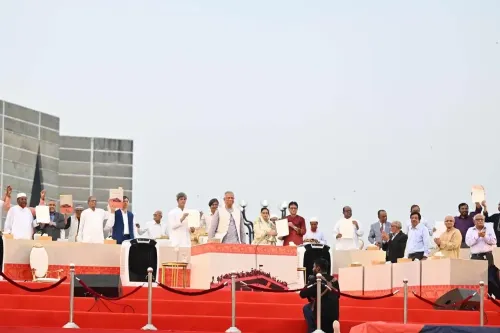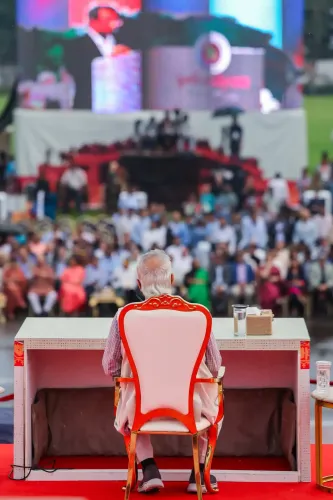Are Indian Immigrants the Most Economically Beneficial Group to the US?

Synopsis
Key Takeaways
- Indian immigrants are the most economically beneficial group in the US.
- An average Indian immigrant reduces national debt by $1.6 million over 30 years.
- H-1B visa holders significantly contribute to GDP growth.
- Ending the H-1B program could lead to substantial economic drawbacks.
- Policy changes are recommended to improve the H-1B visa process.
Washington, Oct 24 (NationPress) A recent analysis conducted by the Manhattan Institute, a prominent conservative think tank, indicates that Indian immigrants represent the most economically advantageous immigrant demographic in the United States, significantly aiding in the reduction of national debt while enhancing GDP growth.
The findings, unveiled by the Institute on Thursday, disclose that an average Indian immigrant effectively reduces the US national debt by over $1.6 million over three decades and contributes more to GDP than immigrants from any other nation.
Among various legal statuses, H-1B visa holders are noted to have the greatest impact on GDP, with a typical H-1B visa holder boosting it by $500,000 after 30 years while simultaneously decreasing the debt by $2.3 million, according to the study.
Daniel Martino, the report's author and a Senior Fellow at the Manhattan Institute, referred to South Asian immigrants, particularly those from India, as the “most fiscally advantageous group.”
He warns that termination of the H-1B visa program could lead to an increase in US debt by $185 billion over the next decade while contracting the economy by $26 billion.
The report also advises the discontinuation of the H-1B lottery process, suggesting a shift towards a wage-based visa system.
This publication arrives as the White House pledged on Thursday to contest lawsuits concerning the administration's stringent measures on H-1B visas.
White House Press Secretary Karoline Leavitt stated: “The president's primary focus has always been to prioritize American workers. The administration will vigorously oppose these lawsuits in court. We recognize that for far too long, the H-1B visa system has been plagued by fraud, adversely affecting American wages. Thus, the President aims to refine this system, which is a key reason behind the introduction of these new policies.”
Recently, the US Chamber of Commerce, the nation’s largest business organization, filed a lawsuit against the Trump administration regarding the new visa regulations, labeling them as “unlawful.”
In a suit lodged in Washington's district court, the plaintiff contended that the visa fee, if enforced, would “cause significant harm to American businesses” and compel them to either substantially raise their labor costs or hire fewer highly skilled workers for whom domestic alternatives are scarce.
It further argued that Trump’s proclamation from September 19 was “clearly unlawful” and a “gift to America’s economic competitors.”
This marks the second significant domestic legal challenge to the new H-1B regulations, following a lawsuit filed by a coalition of unions, educational professionals, and religious organizations against the Trump administration on October 3.
Earlier this week, the US Department of Homeland Security also released new directives regarding the $100,000 H-1B visa application fee, outlining a series of exemptions and exceptions.
According to the updated guidelines, individuals transitioning to H-1B visa status from other visa categories, such as F-1 student status, will not be subject to the $100,000 fee.
The proclamation pertains solely to new visa applications from individuals outside the US without a valid H-1B visa.
Workers from India accounted for over 70 percent of the total approved H1-B visas in 2024, primarily due to a considerable backlog in approvals and a substantial influx of skilled immigrants from India.









